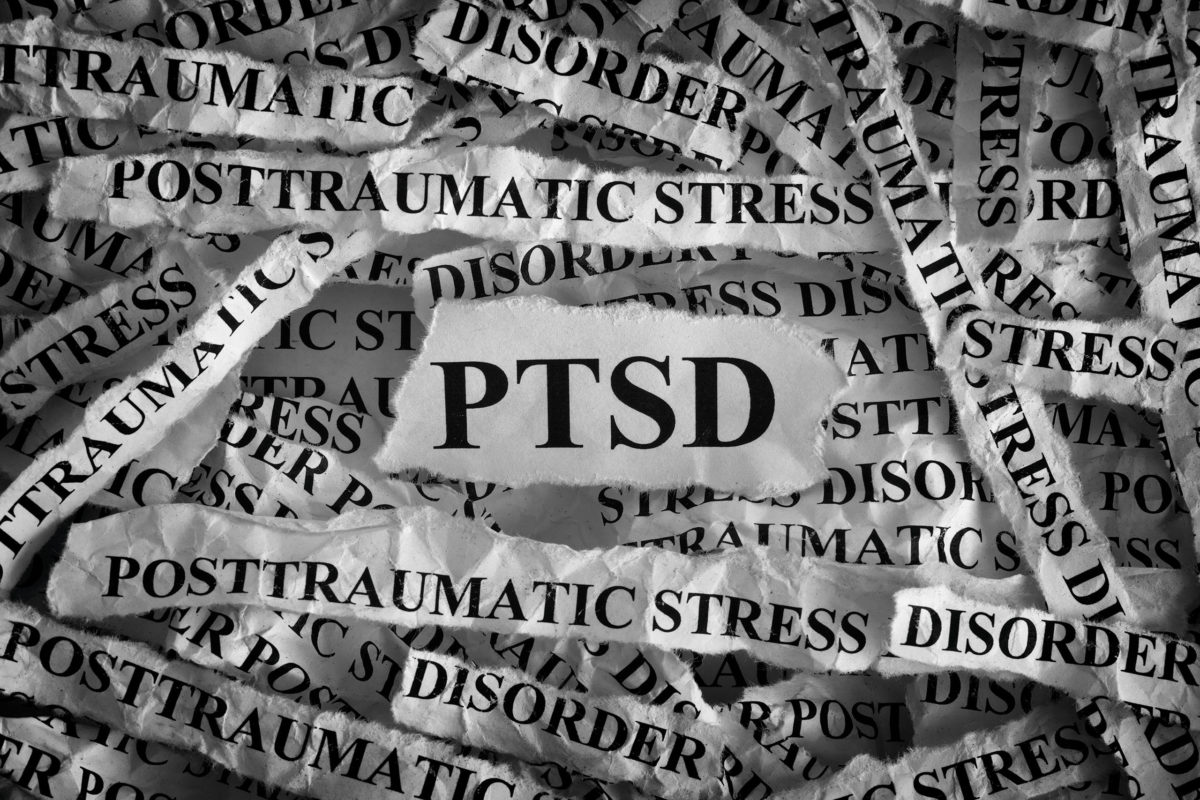Honoring the Journey:
Celebrating PTSD Awareness Month
By Bizzell Editorial Staff
“Unlike other forms of psychological disorders, the core issue in trauma is reality.”
– Bessel A. van der Kolk, “Traumatic Stress: The Effects of Overwhelming Experience on Mind, Body, and Society”
What is trauma? Trauma is an emotional response to an extremely stressful event(s) like an accident, physical abuse, intimate partner violence, sexual assault, combat, natural disasters, and even global pandemics. While not everyone who experiences trauma will develop post-traumatic stress disorder (PTSD), it is still important to understand the effects of trauma.
Trauma biologically changes a person’s brain. When experiencing a traumatic event, the body treats it as a threat, the “fight, flight, or freeze” part of the brain is activated, and the body switches into survival mode. Usually, when the threat has passed, the body will return to a more restful state. However, when the brain doesn’t leave that reactive survival space, PTSD can develop [1]Bizzell, A. C., (2021, June 9). What You Need to Know About PTSD. Psychology Today. https://www.psychologytoday.com/us/blog/mind-your-health/202106/what-you-need-know-about-ptsd.
June is observed as PTSD Awareness Month, with June 27 highlighted as PTSD Screening Day. Within the civilian population, anywhere from 2.3% to 9.1% of Americans will experience an episode of PTSD within a given year. Within the military population, the rates are significantly higher, with 6.7% to 50.2% of American service members experiencing an episode during a year. Regardless of military status, women are more likely to develop PTSD than men [2]Schein, J., Houle, A., Cloutier, M., Patterson-Lomba, O., Wang, Y., King, S., Levinson, W., Guérin, A., Lefebvre, P., & Davis, L. L. (2021). Prevalence of post-traumatic stress disorder in the United States: a systematic literature review. Current Medical Research and Opinion, 37(12), 2151 – 2161. https://doi.org/10.1080/03007995.2021.1978417. In addition, it is very common for individuals with PTSD to have at least one comorbid condition, such as depression or anxiety.
By encouraging people to become more informed about PTSD and what the symptoms may look like, we can lessen the stigma around this condition. Physical symptoms can vary, but may include:
- Flashbacks or re-experiencing the event
- Insomnia
- Panic attacks
- Anxiety
- Chronic fatigue
- Migraines
- Mood instability
- Depression
Other ways PTSD can manifest itself is through the coping behaviors people employ to manage their symptoms. For example, individuals may avoid certain places, activities, people, or dates to avoid triggering an episode. Other people have intense dreams or repetitive flashbacks that intrude on their normal thought processes. Alterations in both cognition and reactivity are also common responses to PTSD; examples include compulsive negative thoughts, engaging in self-destructive activities, or having a distorted self-perception that reinforces feelings of shame or guilt.
Self-treatments such as learning mindfulness techniques, practicing deep breathing, and progressively tensing and relaxing muscles can help a person healthfully cope with the overwhelming stimuli during an episode. Other successful treatments include therapy, medication, or a mix of all the above.
PTSD can be effectively managed through compassionate understanding and appropriate care. The majority of individuals who undergo PTSD ultimately find a path to recovery. Collaborating with a primary care physician to monitor and address symptoms is crucial for achieving recovery or effective management. It is essential to recognize that individuals with PTSD have the capacity to adapt, coexist with their symptoms, and lead meaningful, productive lives.
Learn more about PTSD from the U.S. Department of Veteran Affairs’ National Center for PTSD.
References
[1] Bizzell, A. C., (2021, June 9). What You Need to Know About PTSD. Psychology Today. https://www.psychologytoday.com/us/blog/mind-your-health/202106/what-you-need-know-about-ptsd
[2] Schein, J., Houle, A., Cloutier, M., Patterson-Lomba, O., Wang, Y., King, S., Levinson, W., Guérin, A., Lefebvre, P., & Davis, L. L. (2021). Prevalence of post-traumatic stress disorder in the United States: a systematic literature review. Current Medical Research and Opinion, 37(12), 2151 – 2161. https://doi.org/10.1080/03007995.2021.1978417




